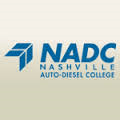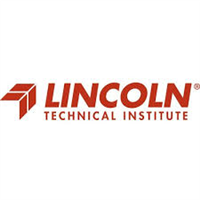What do they do?
Operate or maintain stationary engines, boilers, or other mechanical equipment to provide utilities for buildings or industrial processes. Operate equipment such as steam engines, generators, motors, turbines, and steam boilers.
Also known as:
Auxiliary Operator, Boiler Engineer, Boiler Operator, Boiler Technician (Boiler Tech), Engineer, High Pressure Boiler Operator, Operating Engineer, Operator, Plant Utilities Engineer, Recovery Boiler Operator, Stationary Engineer, Stationary Fireman, Stationary Steam Engineer, Turbine Operator, Utilities Operator, Watch Engineer
-
0%
Change
Ranks #48 in job growth rate70Job Openings
Ranks #17 in net job growth
Looking for colleges that offer a specific major? Use the College Match Tool to find your best-matched schools and discover your estimated Net Price!
- High school diploma equivalent (36%)
- Some college, no degree (25%)
- Bachelor's degree (15%)
- Associate's degree (11%)
- Less than high school diploma (6%)
- Master's degree (5%)
- Doctorate or Professional Degree (1%)
Most Popular Majors that prepare Stationary Engineers and Boiler Operators
-
#1
-
Degrees Granted
26
-
Female Students
1
-
Male Students
25
-
Median Starting Salary
$55,200
-
-
#2
-
Degrees Granted
4
-
Female Students
0
-
Male Students
4
-
Median Starting Salary
$55,200
-
-
#3
-
Degrees Granted
3
-
Female Students
0
-
Male Students
3
-
Median Starting Salary
$56,989
-
People in this career often know a lot about:
- Mechanical - Knowledge of machines and tools, including their designs, uses, repair, and maintenance.
- Chemistry - Knowledge of the chemical composition, structure, and properties of substances and of the chemical processes and transformations that they undergo. This includes uses of chemicals and their interactions, danger signs, production techniques, and disposal methods.
- Public Safety and Security - Knowledge of relevant equipment, policies, procedures, and strategies to promote effective local, state, or national security operations for the protection of people, data, property, and institutions.
People in this career often have talent in:
- Near Vision - The ability to see details at close range (within a few feet of the observer).
- Problem Sensitivity - The ability to tell when something is wrong or is likely to go wrong. It does not involve solving the problem, only recognizing that there is a problem.
- Oral Comprehension - The ability to listen to and understand information and ideas presented through spoken words and sentences.
- Oral Expression - The ability to communicate information and ideas in speaking so others will understand.
People in this career often do these activities:
- Operate pumping systems or equipment.
- Operate energy production equipment.
- Adjust equipment controls to regulate gas flow.
- Adjust equipment controls to regulate flow of water, cleaning solutions, or other liquids.
- Monitor equipment fluid levels.
- Troubleshoot equipment or systems operation problems.
- Monitor equipment operation to ensure proper functioning.
- Ignite fuel to activate heating equipment.
- Record operational or production data.
- Test chemical or physical characteristics of materials or products.
- Direct operational or production activities.
- Watch operating equipment to detect malfunctions.
- Inspect production equipment.
- Operate energy distribution equipment.
- Repair production equipment or tools.
- Adjust flow of electricity to tools or production equipment.
- Clean production equipment.
- Lubricate production equipment.
- Plan production or operational procedures or sequences.
- Investigate accidents to determine causes.
- Notify others of emergencies, problems, or hazards.
- Test electrical equipment or systems to ensure proper functioning.
- Confer with others to resolve production problems or equipment malfunctions.
- Measure ingredients or substances to be used in production processes.
- Exchange information with colleagues.
- Assemble electromechanical or hydraulic systems.
- Adjust equipment to ensure optimal performance.
- Operate industrial equipment.
- Maintain production or processing equipment.
This page includes data from:

 Occupation statistics: USDOL U.S. Bureau of Labor Statistics Occupational Employment Statistics
Occupation statistics: USDOL U.S. Bureau of Labor Statistics Occupational Employment Statistics
 Videos: CareerOneStop, USDOL/ETA and the Minnesota Department of Employment & Economic Development
Videos: CareerOneStop, USDOL/ETA and the Minnesota Department of Employment & Economic Development








